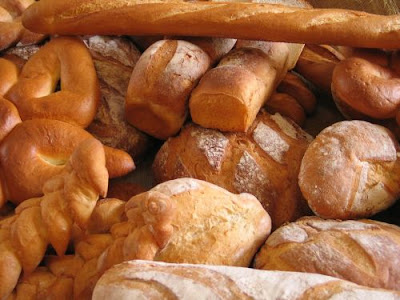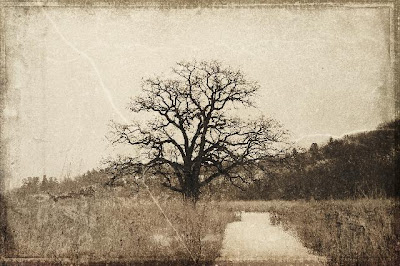All Sorrows Are Less With Bread
Who doesn't like bread? Warm, delicious, slightly-crispy-on-the-outside-while-soft-on-the-inside, yeasty, slightly salty and buttery bread?
Admit it, you're now wondering how to fix the bread craving that just awoke in your stomach. That picture probably didn't help.
Bread is wonderful. It's a staple, a necessity, a comfort, a joy, a daily part of life. Unless you can't eat gluten. Then you get a slightly-substandard form of bread. But it's still bread.
I was recently awoken to a different bread, however. No, not Russian-style black bread - had it, loved it.
Elder D. Todd Christofferson, a Church leader for whose talks I have a deep admiration, spoke about the bread I'm talking about:
If you don't have 35 minutes and 35 seconds to spare, let me explain. No, that would take too long. Let me sum up.
Elder Christofferson uses the following line from the Lord's Prayer as his foundation: "Give us this day our daily bread." While allowing that the request can apply to physical bread that feeds our need for sustenance, Elder Christofferson spins the phrase to talk about our other daily needs, be they spiritual, mental, emotional or otherwise.
That's not what got to me, though; what struck me so strongly is his teaching about what asking God for daily bread does for us. Elder Christofferson uses the example of the children of Israel wandering in the wilderness for 40 years. He points out the impracticality of such a large group - 1,000,000+ - relying on game for food, and that their nomadic nature precludes the cultivation of grain or other crops.
It's in this scenario that the Lord sends manna from heaven, to be gathered daily except on the Sabbath, for which Israel was to gather twice as much manna the day before. It was a daily-and-only-daily chore, though: gather too much and it goes to waste, fail to gather before the Sabbath and there would be none on the ground come morning.
I guess this story always spoke to me of the goodness of God and the importance of obedience. But Elder Christofferson offers something new - that this daily reliance on the Lord meant "He could never be too far from their minds and hearts."
See, there's a lot of advice about planning ahead and being prepared and what have you. It's all true, it's all good, it's all important. Plan for what you can when you can however you can.
But what Elder Christofferson says is that there is no shame in asking the Lord's blessings day by day. Some would have you think such is weakness or poor planning or lack of wisdom (see James 1:5 to see what God says about those who lack wisdom), when in fact daily requests of God are a real boon. You learn to trust Him, to believe Him, and the practice keeps Him ever near to your heart and mind and soul.
Why did this strike me so?
Because I suck at daily reliance.
I've never been a planner, anyway - the only reason I remember stuff is because a) my phone has a calendar and reminders, and b) Tamara. So since I don't look at the long-term, it's easier for me to ignore the short term as well, until it's slapping me in the face (at which point it's too late to do much of anything but take my stripes).
I've also never been a reliant guy, either. I like to solve my own problems, or let time pass them away. Not a real smart way to go through life on either account.
Why is it so hard for me to ask each day for what I need for that day? I don't know. I know, now more so because of Elder Christofferson, that it's a blessing even more than a requirement of faith, but why isn't it, hasn't it ever been enough to spur action?
I know that part of the problem is that for my lack of planning, I am keenly aware of what I need/want to become and how long that process will take. And that scares me, deters me, says to me, "It's a huge process, are you sure you're ready for that?" Often my answer is, "No," and I continue in my foible-filled ways.
But that's where Elder Christofferson says the asking daily for bread comes in again. Citing a fellow apostle, Elder David A. Bednar, he talks of a painting viewed close up. You see the individual brushstrokes but from that vantage point they seem unimpressive. Only when you step back do you realize how they fit, blend, weave together to form a beautiful tapestry.
I take that object lesson into mind and four things happen:
Maybe the hardest part is admitting to myself that I do need bread every day - I can get by on peanut butter M&M's and top sirloins and pineapple upside down cake for a day, maybe two, but real sustenance is bread: plain, simple yet actually satisfying bread.
There's so much more to Elder Christofferson's talk. If you haven't, go watch it, read it, listen to it, learn from it.
As for me, I'm going to find a bakery.
Admit it, you're now wondering how to fix the bread craving that just awoke in your stomach. That picture probably didn't help.
Bread is wonderful. It's a staple, a necessity, a comfort, a joy, a daily part of life. Unless you can't eat gluten. Then you get a slightly-substandard form of bread. But it's still bread.
I was recently awoken to a different bread, however. No, not Russian-style black bread - had it, loved it.
Elder D. Todd Christofferson, a Church leader for whose talks I have a deep admiration, spoke about the bread I'm talking about:
If you don't have 35 minutes and 35 seconds to spare, let me explain. No, that would take too long. Let me sum up.
Elder Christofferson uses the following line from the Lord's Prayer as his foundation: "Give us this day our daily bread." While allowing that the request can apply to physical bread that feeds our need for sustenance, Elder Christofferson spins the phrase to talk about our other daily needs, be they spiritual, mental, emotional or otherwise.
That's not what got to me, though; what struck me so strongly is his teaching about what asking God for daily bread does for us. Elder Christofferson uses the example of the children of Israel wandering in the wilderness for 40 years. He points out the impracticality of such a large group - 1,000,000+ - relying on game for food, and that their nomadic nature precludes the cultivation of grain or other crops.
It's in this scenario that the Lord sends manna from heaven, to be gathered daily except on the Sabbath, for which Israel was to gather twice as much manna the day before. It was a daily-and-only-daily chore, though: gather too much and it goes to waste, fail to gather before the Sabbath and there would be none on the ground come morning.
I guess this story always spoke to me of the goodness of God and the importance of obedience. But Elder Christofferson offers something new - that this daily reliance on the Lord meant "He could never be too far from their minds and hearts."
See, there's a lot of advice about planning ahead and being prepared and what have you. It's all true, it's all good, it's all important. Plan for what you can when you can however you can.
But what Elder Christofferson says is that there is no shame in asking the Lord's blessings day by day. Some would have you think such is weakness or poor planning or lack of wisdom (see James 1:5 to see what God says about those who lack wisdom), when in fact daily requests of God are a real boon. You learn to trust Him, to believe Him, and the practice keeps Him ever near to your heart and mind and soul.
Why did this strike me so?
Because I suck at daily reliance.
I've never been a planner, anyway - the only reason I remember stuff is because a) my phone has a calendar and reminders, and b) Tamara. So since I don't look at the long-term, it's easier for me to ignore the short term as well, until it's slapping me in the face (at which point it's too late to do much of anything but take my stripes).
I've also never been a reliant guy, either. I like to solve my own problems, or let time pass them away. Not a real smart way to go through life on either account.
Why is it so hard for me to ask each day for what I need for that day? I don't know. I know, now more so because of Elder Christofferson, that it's a blessing even more than a requirement of faith, but why isn't it, hasn't it ever been enough to spur action?
I know that part of the problem is that for my lack of planning, I am keenly aware of what I need/want to become and how long that process will take. And that scares me, deters me, says to me, "It's a huge process, are you sure you're ready for that?" Often my answer is, "No," and I continue in my foible-filled ways.
But that's where Elder Christofferson says the asking daily for bread comes in again. Citing a fellow apostle, Elder David A. Bednar, he talks of a painting viewed close up. You see the individual brushstrokes but from that vantage point they seem unimpressive. Only when you step back do you realize how they fit, blend, weave together to form a beautiful tapestry.
 |
| "Golden Harvest," by David Merrill |
I take that object lesson into mind and four things happen:
- I see where I was X years ago and realize how much I've changed for the better, grown, learned, experienced
- I see where I was X years ago and frown because of all I haven't changed, haven't learned, haven't experienced; all the problems and bad habits and stupid follies I haven't nipped in the bud, that still plague me and fill me with guilt and self-anger and self-pity
- I tremble inside ever so slightly knowing that if I want to correct #2, it's going to take a long process of one day/step/stair at a time
- I take heart, knowing that if I lay a brick at a time, eventually - after a week, a month, a year - I'll have a castle
 |
| And yes, it will look like Minas Tirith. |
Maybe the hardest part is admitting to myself that I do need bread every day - I can get by on peanut butter M&M's and top sirloins and pineapple upside down cake for a day, maybe two, but real sustenance is bread: plain, simple yet actually satisfying bread.
There's so much more to Elder Christofferson's talk. If you haven't, go watch it, read it, listen to it, learn from it.
As for me, I'm going to find a bakery.








Comments
Also...I am right there with you in not asking for daily bread. I feel so much more comfortable relying on my own efforts. Plus, with HF being all-knowing, do I really need to tell Him what I need?
For more years than I would care to admit, I was much of the mind that I didn't deserve to ask for bread. And so I didn't. Now it still takes humility and effort to ask, but I am so blessed because of it.
Melanie-It's hard to rely on other. But remember, thinking "Heavenly Father knows what I want so why ask?" is kind of like saying "Heavenly Father KNOWS I'm sorry, so why apologize." It's not just the action, but the intent behind it that is important.